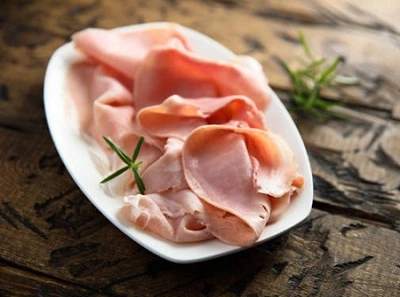Could a few scraps of leftover bologna make a tasty treat for your curious kitty? Maybe, but before grabbing those cold cuts, it’s essential to understand the potential risks of feeding bologna to cats.
Can Cats Eat Bologna? Nutritionists emphasize that bologna lacks essential nutrients, with high fat and sodium levels posing long-term health hazards for cats.
Many cat owners find themselves wondering, “can cats eat bologna?” After all, we enjoy deli meats, so why not share a bite with our furry friends? However, while the occasional nibble likely won’t harm cats, veterinarians caution against serving bologna. This processed meat offers little nutritional value and introduces preservatives and seasonings.
So should cats eat bologna? Let’s unpack the safety considerations, healthier alternatives, and precautions to minimize risks.
Not Recommended, But Possible Risks
Veterinary nutritionists caution that bologna should not constitute a routine part of feline diets. Multiple factors render deli meats like bologna an inadequate choice for cats from a health perspective.
For starters, bologna simply lacks proper nutritional content aligned with cats’ biological needs. As obligate carnivores, cats require sufficient animal protein and fat from meat sources, not plant-based carbs and oils.

Bologna contains no nutrients – it is high in fat, high in sodium, and completely void of vital vitamins, minerals, amino acids, and fiber. Compared to quality cat food or fresh meats, bologna fails to truly nourish cats.
Beyond nutritional inadequacy, excessive sodium and fat levels found in processed bologna pose significant health hazards for cats over time. The high salt content stresses feline kidneys and livers, which must work harder to filter out and excrete such concentrated sodium. These crucial organs can weaken under prolonged strain.
Likewise, high saturated fat irritates digestive tracts and skin while promoting obesity and inflammation of the pancreas. Obese cats face joint issues, diabetes, and heart disease – all exacerbated by a fatty bologna-laden diet lacking wholesome nutrition.
Finally, an array of chemical preservatives introduce avoidable poisoning risks that challenge cats’ health.
Nitrates and nitrites keep deli meats visually appealing and extend shelf-life, but prove toxic for continual ingestion. These and other antimicrobial additives may inflict gastrointestinal issues, thyroid dysfunction, liver damage, and neurological problems.
While rarely causing immediate life-threatening reactions, long-term exposure likely creates chronic disease.
Can Cats Eat Bologna?
Can Cats Eat Bologna? Many of the vet Nutritionists focused on avoiding bologna for cats as it can be toxic for pets. There are few reasons explained here:
Nutritional Inadequacy of Bologna
Bologna offers no nutritional benefits—it’s high in fat and sodium with no fiber, vitamins or minerals. As obligate carnivores require meat-rich nutrition, cats need healthier options.

High Sodium and Fat Content
Excessive salt and saturated fat found in bologna can strain cats’ kidneys and livers over time while promoting obesity, pancreatitis and skin irritation.
Preservatives and Chemical Residues
Nitrates, nitrites and other processing agents help preserve shelf-stable bologna but may cause gastrointestinal, neurological, or thyroid problems if consistently ingested.
Safer Meat Alternatives for Cats
Rather than bologna packed with preservatives, cats thrive on minimally processed meat options closer to their natural diets. Better choices include:
Lean Deli Meat Options
Seeking unseasoned, additive-free choices like plain turkey, chicken or roast beef provides more nutritional value. Check labels to avoid onion, garlic or sweeteners.
High-Quality Cat Food With Meat Ingredients
Reputable quality cat foods offer balanced nutrition with enough quality animal proteins and fats to satisfy cats’ dietary needs.
Cooked Fresh Meat Without Seasoning
Natural cooked chicken, beef or fish contains optimal protein levels without risky preservative exposure.
Serving Guidance If Allowing Occasional Bologna
While cat owners should avoid making deli meats a dietary staple, the rare bologna treat likely won’t significantly harm an otherwise healthy cat.
Extremely Sparse Portions
A few thin slices once a month poses little risk. More frequent high amounts may cause digestive upset or obesity though.
Plain Varieties Without Garlic or Onions
Seeking low-sodium bologna free of onion and garlic lowers the risks of toxicity.
Proper Storage And Handling
Promptly refrigerating opened bologna prevents spoilage and bacteria growth while washing hands and surfaces eliminates cross-contamination.
Summary
In summary, it’s best to forego bologna altogether when feeding quality cat food for optimal health and nutrition. But if offering the very occasional piece, selecting high-quality cold cuts in tiny portions remains key to minimizing any dangers. Checking with your veterinarian about suitable human foods provides tailored guidance to keep your cat happy and healthy.


Leave a Reply